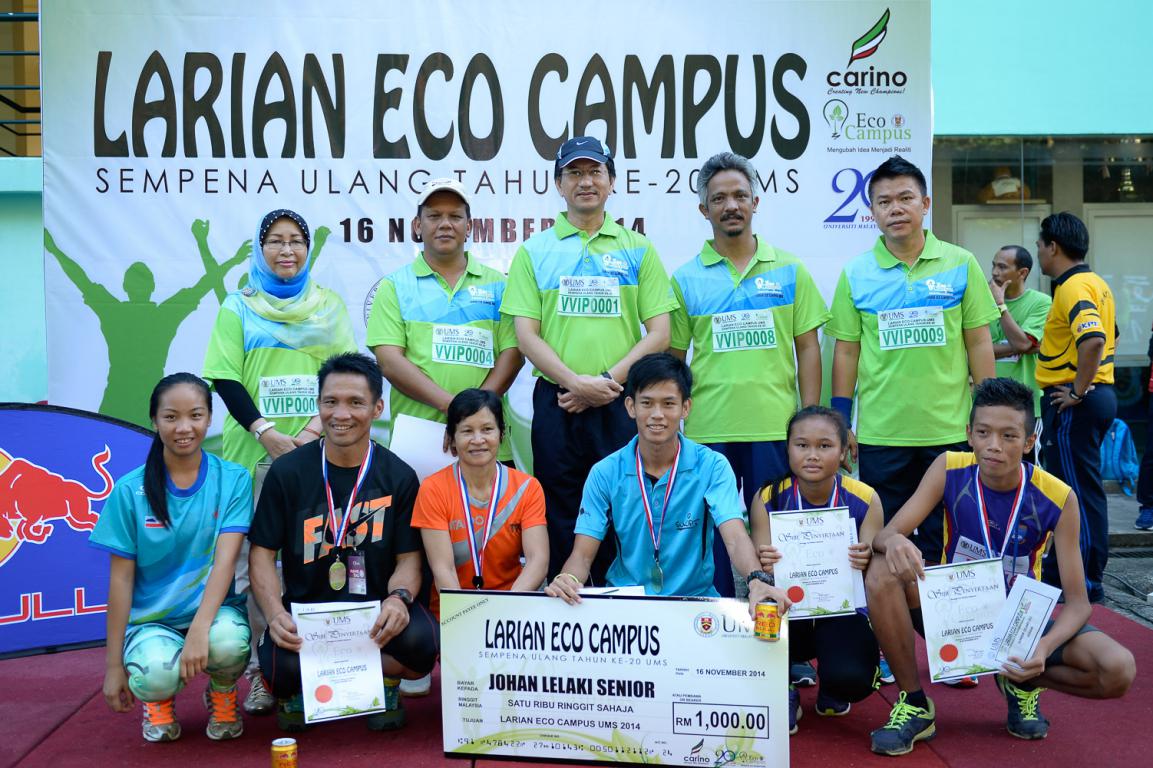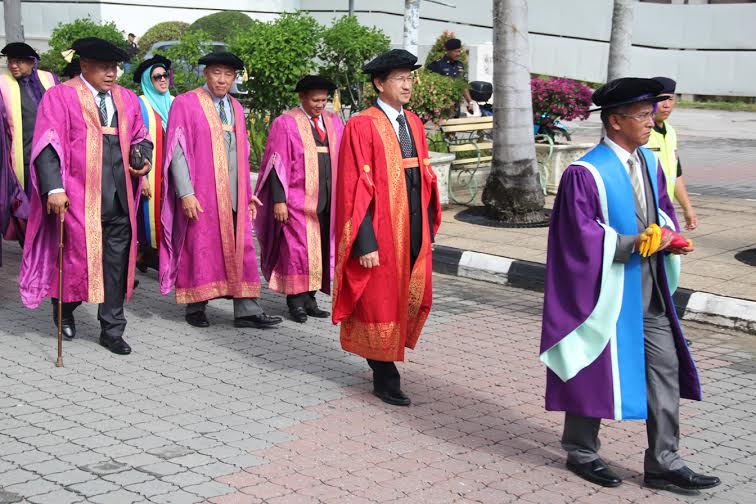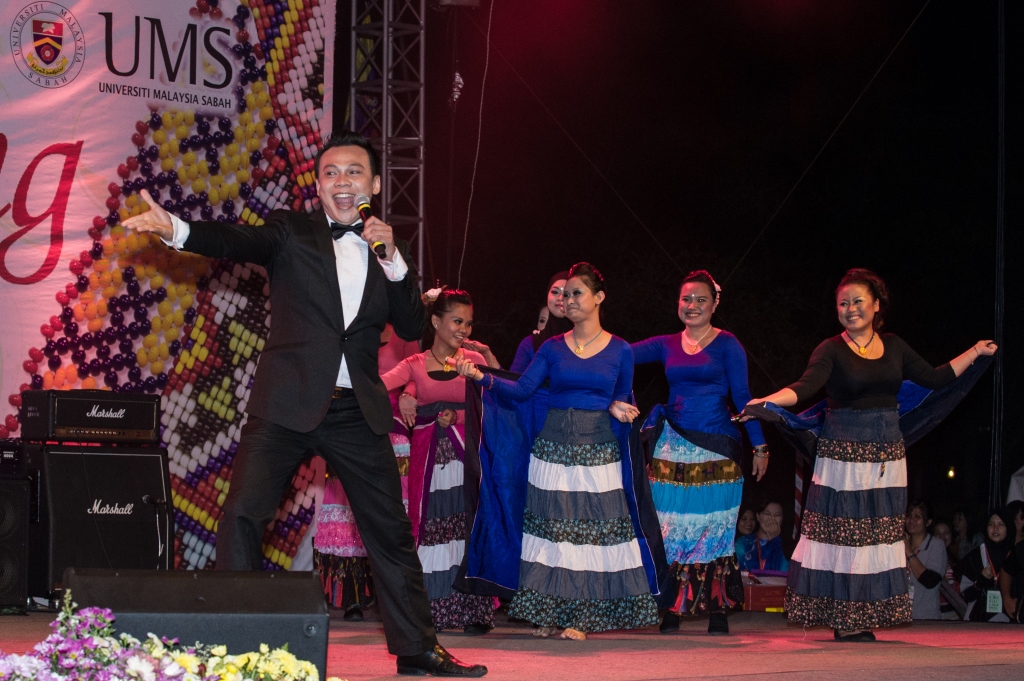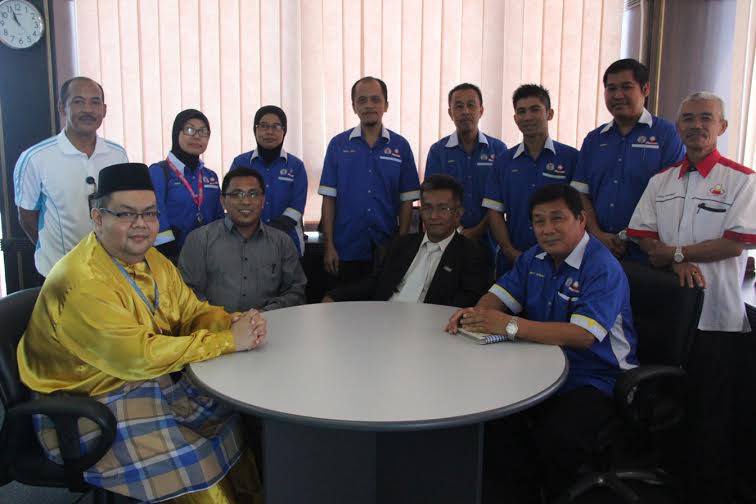 MONDAY, 17th NOVEMBER – EcoCampus Run in conjunction with Universiti Malaysia Sabah (UMS) 20th years anniversary liven up with encouraging participations from both local and UMS communities.
MONDAY, 17th NOVEMBER – EcoCampus Run in conjunction with Universiti Malaysia Sabah (UMS) 20th years anniversary liven up with encouraging participations from both local and UMS communities.The programme was organized by UMS Sports Centre were open to a few categories; men’s and women’s senior open, men’s and women’s veteran and also student category for 18 years old and below.
The programme, started as early as 6.00 in the morning, was also joined by UMS Vice-Chancellor, Prof. Datuk Dr. Mohd Harun Abdullah.
Later during the programme, Prof. Datuk Dr. Mohd Harun Abdullah also presented the prizes to all the winners.
Champion for the men’s senior category goes to Pang Tsun Kuo, who received RM1, 000 while Salesnella Gabi won women’s senior category with RM500 in hand.
Men’s veteran champion was Suhaipin Surin with RM300 cash prize while Hasni Salagan becomes the champion with prize winnings, RM250 in the women’s veteran category.
Jomon Papau and Cyril Michelle Jomani both is the champion in the student under 18 years category, and received RM200.
All winners also received certificate and medal.
The run race routes are all in the UMS campus area for all categories, with around 500 runners participated in the run.
Deputy Vice-Chancellor (Student Affairs and Alumni), Assoc. Prof. Dr. Ismail Ali, Chief Librarian, Dg. Rukiah Ag. Amit, and Head of Chancellery Department, No’man Hj. Ahmad was also present during the programme.
Media and Citra Division
Chancellery Department
Photo: Ernest Berinus



 MONDAY, 17th NOVEMBER – 2014 Town and Gown Parade Ceremony have proven a strong cooperation between Universiti Malaysia Sabah (UMS) and Labuan Corporation.
MONDAY, 17th NOVEMBER – 2014 Town and Gown Parade Ceremony have proven a strong cooperation between Universiti Malaysia Sabah (UMS) and Labuan Corporation. FRIDAY, 14th NOVEMBER – Once again, Universiti Malaysia Sabah (UMS) will be the centre of attraction when Pesta Tamu Gadang will be held at Padang Kawad, the EcoTourism Campus on this 18th until 24th November 2014.
FRIDAY, 14th NOVEMBER – Once again, Universiti Malaysia Sabah (UMS) will be the centre of attraction when Pesta Tamu Gadang will be held at Padang Kawad, the EcoTourism Campus on this 18th until 24th November 2014.
 JUMAAT, 14 NOVEMBER - Universiti Malaysia Sabah (UMS) menyahut saranan Kementerian Pendidikan Malaysia (KPM) dalam memberikan perkhidmatan terbaik kepada pelanggan-pelanggan tanpa melibatkan kos yang tinggi.
JUMAAT, 14 NOVEMBER - Universiti Malaysia Sabah (UMS) menyahut saranan Kementerian Pendidikan Malaysia (KPM) dalam memberikan perkhidmatan terbaik kepada pelanggan-pelanggan tanpa melibatkan kos yang tinggi.